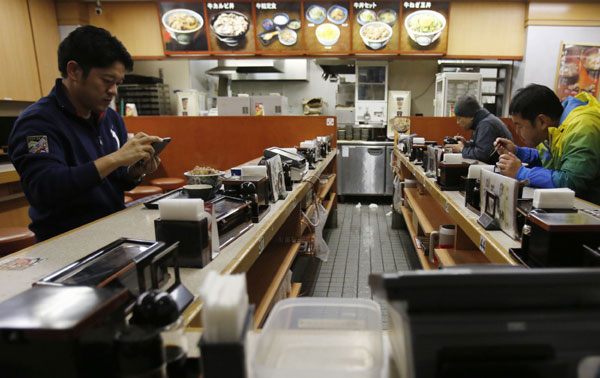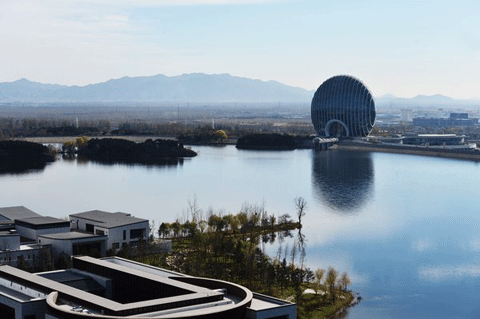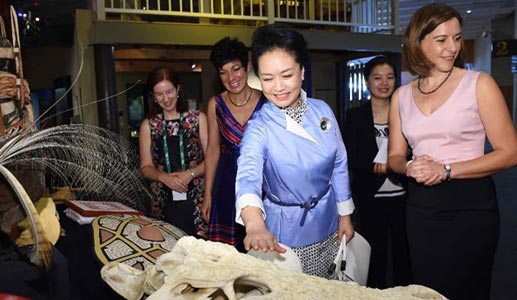Japan's economy contracts 1.6%
Updated: 2014-11-17 10:09
(Agencies)
|
||||||||
 |
|
Customers eat at midnight at a beef bowl fast food restaurant in Tokyo November 17, 2014. Japan's economy unexpectedly shrank an annualised 1.6 percent in July-September after a severe contraction in the previous quarter, likely solidifying the view that premier Shinzo Abe will delay a second sales tax hike next year.[Photo/Agencies] |
TOKYO - Japan reported Monday that its economy contracted at a real annual rate of 1.6 percent in July-September, in a second straight quarterly decline that returned the country to recession.
A 24.1 percent plunge in private residential investment from a year earlier failed to offset a modest recovery in exports and a 1.5 percent increase in household spending.
Most economists had forecast that the world's third-biggest economy would expand at about a 2 percent pace. The negative growth figure was much lower than expected and makes it very likely Prime Minister Shinzo Abe will delay implementation of a sales tax hike planned for October, 2015.
The economy contracted 7.1 percent in April-June after the national sales tax was raised to 8 percent from 5 percent. The decline in July-September represented a 0.4 percent decrease from the previous quarter.
The release Monday of the preliminary quarterly economic data, normally a routine event, was received with far more attention than usual since Abe is expected to make the dismal GDP reading the basis for calling a general election.
"In light of the sharp fall in today's preliminary estimate, it now looks likely that (Prime Minister) Abe will call off the hike and announce snap elections," economist Marcel Thieliant of Capital Economics said in a commentary.
The benchmark Nikkei 225 stock index dropped 1.4 percent in its first hour of trading.
A recession commonly is regarded as two straight quarters of economic contraction. Japan emerged from its last recession in late 2012, just as Abe took office pledging to restore the country's economic vigor.
In calling the snap election, Abe wants a renewed mandate for his "Abenomics" policies aimed at revitalizing the economy through lavish injections of cash into the economy by the central bank, strong public spending and reforms intended to improve the country's waning economic competitiveness.
Tax increases are crucial for getting Japan's battered government finances into better shape, and putting off the hike slated for next year carries some risk that financial markets may doubt Japan's resolve to restore its ailing public finances. After many years of deficit spending the total public debt is more than twice the size of the economy and the largest among developed nations.
But Abe and his advisers appear to view the threat to Japan's recovery, which has limped along since the April 1 increase in the sales tax to 8 percent from 5 percent, as the more urgent risk.
Critics say Abe has failed to deliver on promises for drastic reforms of labor regulations, the tax system and the health industry, among other areas. Meanwhile, companies have largely refrained from passing windfall gains from share price gains and surging profits on to their workers in the form of higher wages.
The extreme monetary easing by the Bank of Japan has helped drive the value of the Japanese yen to seven-year lows against the US dollar, pushing up costs for imported food and fuel in this resource-scarce country.
Meanwhile, household spending has remained lackluster, as families and small companies tightened belts to meet higher costs.

 3,000 take part in Happy 10k run in S China
3,000 take part in Happy 10k run in S China
 Top 9 goods Alibaba's buyers purchase overseas
Top 9 goods Alibaba's buyers purchase overseas
 APEC venues open to tourists
APEC venues open to tourists
 SpongeBob gets iced, via Harbin
SpongeBob gets iced, via Harbin
 Animal gifts smooth diplomatic relations
Animal gifts smooth diplomatic relations
 Lovers wed en masse
Lovers wed en masse
 Peng Liyuan visits Queensland Museum in Brisbane, Australia
Peng Liyuan visits Queensland Museum in Brisbane, Australia
 Small businessman's Chinese Dream
Small businessman's Chinese Dream
Most Viewed
Editor's Picks

|

|

|

|

|

|
Today's Top News
APEC venues open to tourists
Remembering a great poet and his love of China with a statue and a reading
SpongeBob gets iced, via Harbin
China’s high-speed train technology stars at exhibit in Brazil
Chile builds on trade with China
Chinese companies seek marketing slam dunk with Nets
Animal gifts smooth diplomatic relations
Koalas steal the show at G20 in Brisbane
US Weekly

|

|







